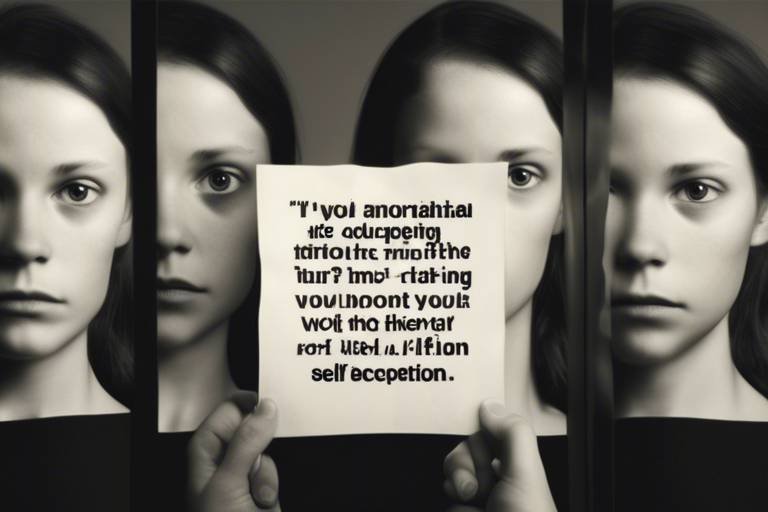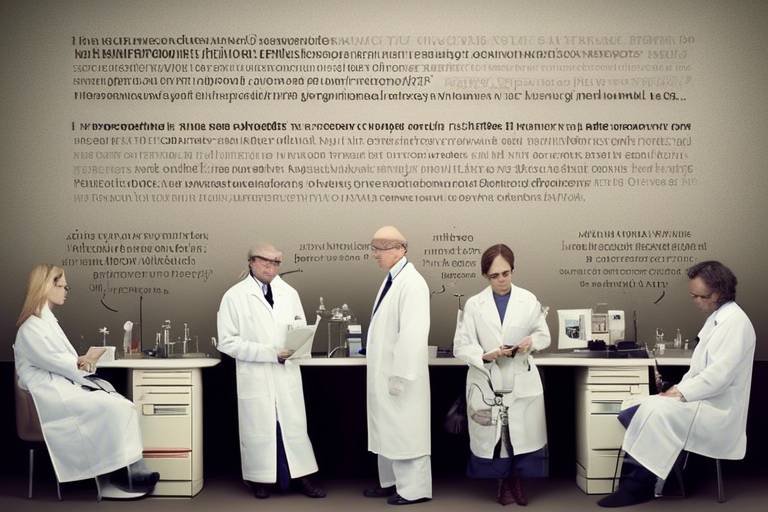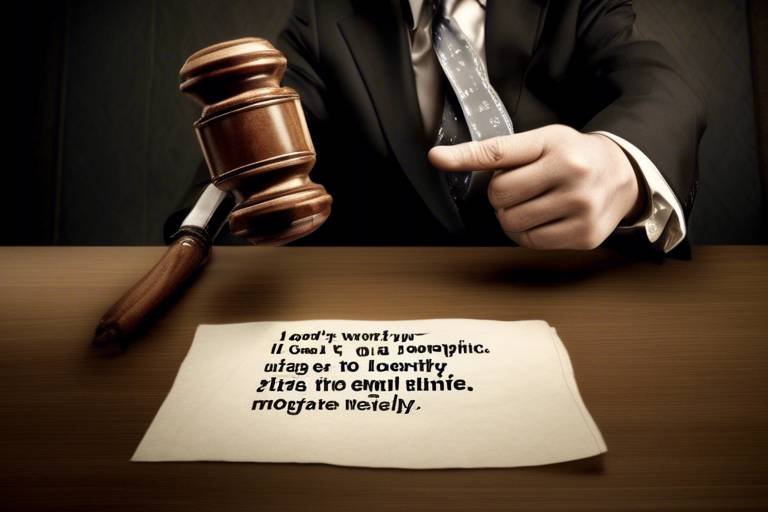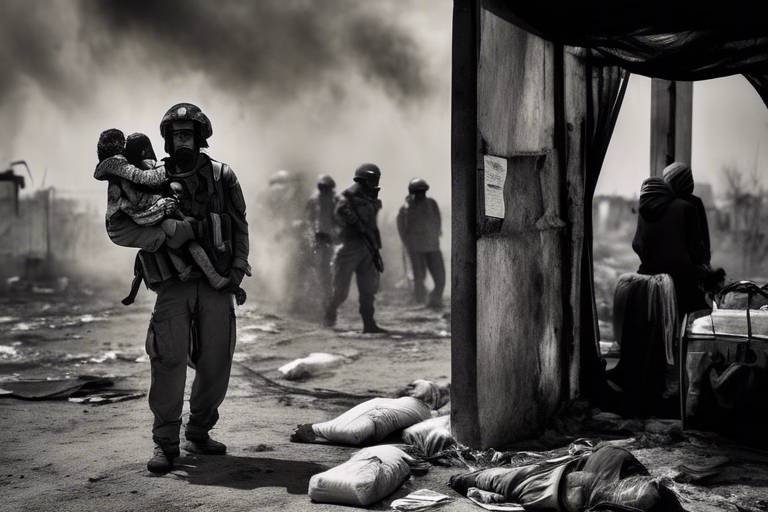Can Ethics Bring Peace to a War-Torn World?
In a world where chaos often reigns and conflict seems to be an unending cycle, the question arises: can ethics truly pave the way for peace? It’s a thought-provoking notion, one that forces us to delve deep into the very fabric of our moral beliefs and how they influence our actions in times of turmoil. Ethics, at its core, is about making choices that reflect our values and principles. When applied to conflict resolution, these moral frameworks can serve as guiding lights, illuminating paths toward reconciliation and understanding amidst the rubble of war.
Imagine a battlefield, where the sounds of gunfire and cries of anguish fill the air. In such dire circumstances, it’s easy to succumb to despair and lose sight of what’s right. However, history teaches us that ethical considerations can often lead to surprising outcomes. For instance, leaders who prioritize moral principles over mere power dynamics tend to foster a sense of trust and cooperation, even with former adversaries. This is not just a lofty ideal; it’s a practical approach that has been observed throughout various conflicts around the globe.
In this article, we will explore the profound impact that ethics can have on conflict resolution. We will examine historical perspectives, ethical theories, and the importance of dialogue and diplomacy. By understanding how moral principles can guide actions and decisions, we can begin to envision a world where peace is not just a dream, but a tangible reality. So, let’s embark on this journey together, peeling back the layers of ethics and war, and discovering how they intertwine in the quest for peace.
Understanding how ethical frameworks can inform conflict resolution strategies is crucial for promoting peace. At the heart of this exploration lies the recognition that ethical decision-making can significantly impact the outcomes of conflicts. Think of ethics as the compass that guides individuals and nations through the murky waters of war. When faced with the challenging decisions that arise in conflict situations, having a solid ethical foundation can make all the difference.
Ethical theories, such as consequentialism, deontology, and virtue ethics, provide diverse perspectives on how to approach conflict resolution. Consequentialism focuses on the outcomes of actions, urging decision-makers to consider the greater good. On the other hand, deontology emphasizes the importance of adhering to moral rules and duties, regardless of the consequences. Lastly, virtue ethics encourages individuals to cultivate moral character, highlighting the importance of personal integrity in decision-making. Each of these theories offers valuable insights, allowing us to navigate the complexities of war with a moral lens.
When we examine historical events, we can see how ethical considerations have shaped wartime decisions. For example, during World War II, the concept of just war emerged as a crucial framework for evaluating the morality of military actions. Leaders and scholars engaged in heated debates over what constituted a just cause and whether the means used in warfare were ethically acceptable. These discussions were not merely academic; they had real-world implications that influenced military strategies and international relations.
Significant moments in history, such as the Nuremberg Trials, further underscore the role of ethics in wartime decisions. The trials held individuals accountable for war crimes, reinforcing the idea that ethical principles should govern not only the actions of nations but also the conduct of individuals. This historical perspective highlights the importance of integrating ethics into our understanding of conflict resolution, demonstrating that moral considerations can lead to justice and accountability.
At the heart of ethical discussions surrounding war lies the Just War Theory. This moral framework provides a set of criteria for evaluating the justification of war, emphasizing the need for ethical reasoning in military conflicts. The principles of Just War Theory serve as a guide for leaders and soldiers alike, helping them navigate the moral complexities inherent in warfare.
The criteria for a just war include:
- Just Cause: There must be a legitimate reason for going to war, such as self-defense or protecting innocent lives.
- Proportionality: The anticipated benefits of the war must outweigh the expected harms.
- Discrimination: Combatants must distinguish between military targets and non-combatants, ensuring that civilians are protected.
These principles are not just theoretical; they have practical relevance in modern warfare ethics, guiding decision-makers toward more humane and just actions.
Despite its influence, Just War Theory faces criticism and challenges. Some argue that the criteria are often subjective and can be manipulated to justify unethical actions. Others contend that the complexities of modern warfare, such as asymmetric conflicts and terrorism, complicate the application of these principles. This ongoing debate highlights the need for continuous ethical reflection and adaptation in the face of evolving conflicts.
War often presents complex ethical dilemmas for individuals and nations. Soldiers may grapple with the morality of their orders, while leaders must balance national interests with humanitarian considerations. Civilians caught in the crossfire face harrowing choices that can haunt them for a lifetime. These dilemmas underscore the importance of ethical frameworks in guiding decision-making during conflicts, reminding us that even in the darkest times, moral considerations can illuminate our path.
Dialogue and diplomacy are essential tools for peacebuilding. They offer a platform for conflicting parties to come together, fostering understanding and cooperation. The ethical importance of communication cannot be overstated; it is through dialogue that we can bridge divides and work toward common goals. In a world where misunderstandings often escalate into violence, prioritizing communication is not just a strategy—it’s a moral imperative.
Effective communication is key to building trust among conflicting parties. Strategies for fostering open dialogue in peace negotiations include active listening, empathy, and transparency. When parties feel heard and understood, they are more likely to engage in constructive conversations, paving the way for lasting peace.
Third-party mediators can facilitate ethical discussions between conflicting parties. Their neutrality allows them to create a safe space for dialogue, promoting peace and ethical resolutions. By acting as intermediaries, these mediators can help navigate the complexities of conflict, ensuring that ethical considerations remain at the forefront of discussions.
Q: How can ethics influence conflict resolution?
A: Ethics provide a moral framework that guides decision-making, helping individuals and nations navigate the complexities of conflict with integrity and compassion.
Q: What is Just War Theory?
A: Just War Theory is a moral framework that evaluates the justification of war based on criteria such as just cause, proportionality, and discrimination.
Q: Why is dialogue important in conflict resolution?
A: Dialogue fosters understanding and trust, allowing conflicting parties to engage in constructive conversations that can lead to peaceful resolutions.

The Role of Ethics in Conflict Resolution
Understanding how ethical frameworks can inform conflict resolution strategies is crucial for promoting peace. Ethics, at its core, involves the principles that govern our behavior and decision-making. In the context of conflict resolution, these principles act as a compass, guiding individuals and nations toward actions that prioritize human dignity and justice. When we think about resolving conflicts, it's essential to consider not just the immediate outcomes, but the long-term implications of our actions. After all, what good is a temporary solution if it sows the seeds for future discord?
One of the key ethical theories that can be applied to conflict resolution is Utilitarianism, which advocates for actions that maximize overall happiness and minimize suffering. This approach encourages decision-makers to evaluate the potential consequences of their actions on all parties involved. Imagine a scenario where a government must decide whether to intervene in a civil conflict. A utilitarian perspective would push them to weigh the potential benefits of intervention against the possible harm it could inflict on civilians caught in the crossfire. In this way, ethics acts as a filter, ensuring that decisions are not made in a vacuum but are instead grounded in a broader understanding of their impact.
Another important ethical framework is Deontology, which emphasizes the importance of duty and rules. According to this perspective, certain actions are inherently right or wrong, regardless of their outcomes. For instance, the principle of human rights asserts that every individual deserves respect and protection, which should guide actions in conflict situations. This means that even in the heat of war, there are ethical boundaries that should not be crossed. By adhering to these principles, parties can maintain a level of humanity that is often lost in the chaos of conflict.
Furthermore, the role of ethics in conflict resolution is not just theoretical; it has practical applications as well. For instance, when negotiating peace treaties, ethical considerations can shape the terms of agreement. A strong ethical foundation can foster trust and cooperation among conflicting parties, paving the way for sustainable peace. This is particularly important in post-conflict scenarios where rebuilding relationships and communities is essential. Ethical principles can guide the reconstruction efforts, ensuring that they are inclusive and just, which is vital for preventing future conflicts.
In summary, the role of ethics in conflict resolution cannot be overstated. It provides a framework for understanding the complexities of human behavior and the moral implications of our choices. By integrating ethical considerations into decision-making processes, we can aspire to create a world where peace is not just an absence of war, but a state of justice and mutual respect. As we move forward, it is imperative that we continue to engage in discussions about ethics and their application in resolving conflicts, as this dialogue is essential for nurturing a peaceful global community.
- What is the importance of ethics in conflict resolution? Ethics helps guide decision-making, ensuring actions are just and considerate of all parties involved.
- How can ethical frameworks be applied in real-world conflicts? Ethical frameworks like Utilitarianism and Deontology can inform strategies and negotiations, promoting peace and justice.
- Can ethics alone resolve conflicts? While ethics are crucial, they must be paired with effective communication and negotiation strategies to achieve lasting peace.
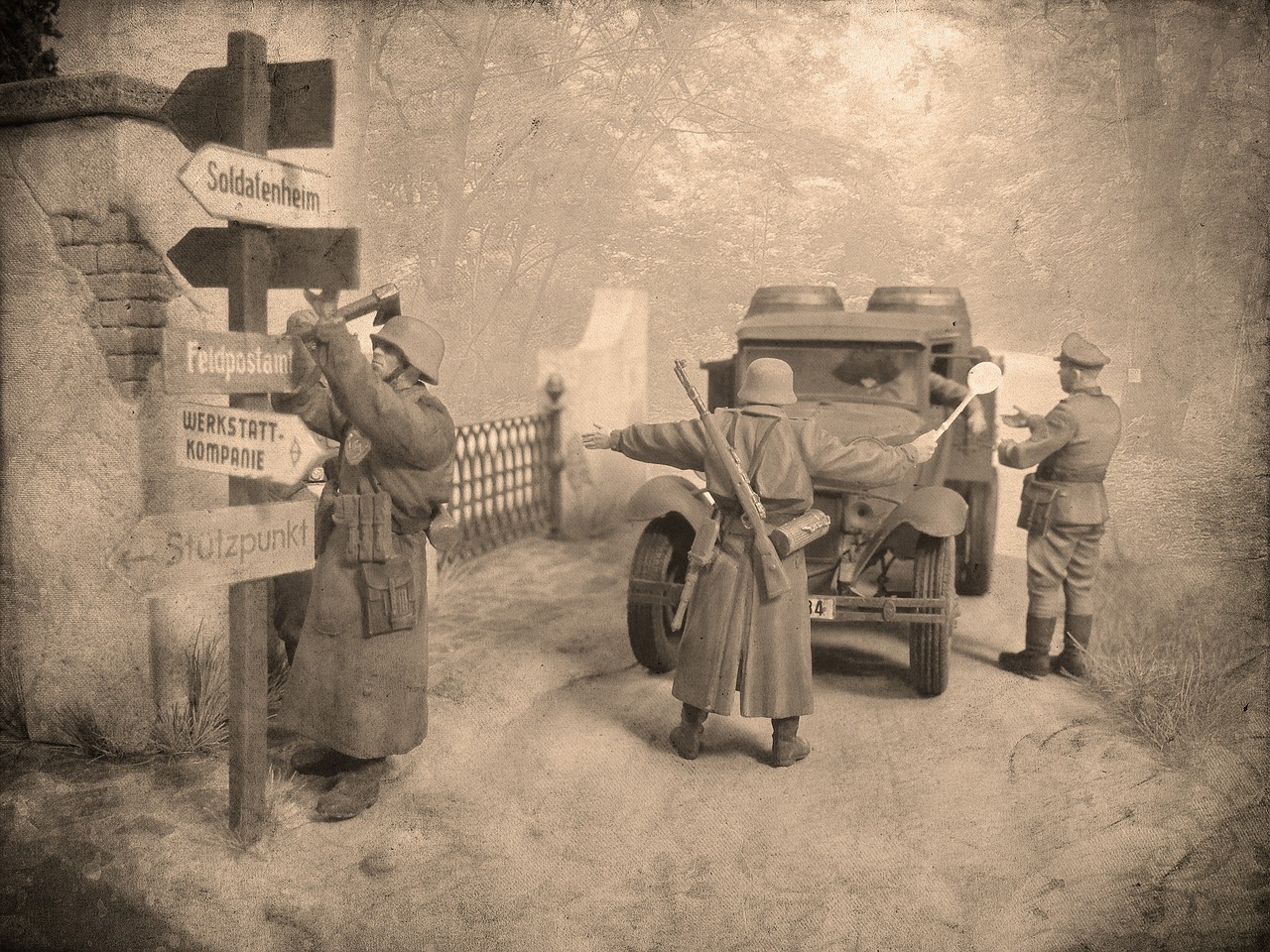
Historical Perspectives on Ethics and War
Throughout history, the intersection of ethics and war has been a subject of profound reflection and debate. Ethical considerations have not only shaped the conduct of wars but have also influenced the motivations behind them. From ancient philosophies to modern-day conflicts, the moral implications of warfare have been a guiding force in how societies understand and engage in conflict. For instance, thinkers like Plato and Aristotle laid the groundwork for ethical reasoning, which later found its way into the realm of warfare. Their ideas about justice and virtue provided a lens through which leaders could evaluate the morality of their actions during conflicts.
One significant moment in history that highlights the ethical dimensions of war is the American Civil War. The conflict was not merely a struggle over territory or power; it was deeply rooted in ethical questions surrounding slavery and human rights. The Emancipation Proclamation, issued by President Abraham Lincoln, was a pivotal moment that underscored the moral imperative to end slavery, showcasing how ethical considerations can drive wartime decisions. This decision not only changed the course of the war but also set a precedent for future conflicts where ethical dilemmas played a crucial role.
Moreover, the aftermath of World War II brought about the establishment of the United Nations and the Universal Declaration of Human Rights, both of which reflect a global consensus on ethical standards in warfare. The atrocities committed during the war led to a collective realization that ethical frameworks must guide international relations and conflict resolution. This period marked a shift towards viewing war through an ethical lens, emphasizing the importance of protecting civilian lives and upholding human dignity, even amidst conflict.
In more recent times, the Gulf War and the ongoing conflicts in the Middle East have raised new ethical questions regarding the use of military force, civilian casualties, and the justification of intervention. The debates surrounding these conflicts often revolve around the principles of Just War Theory, which emphasizes the need for a just cause and proportionality in military actions. These discussions reveal that the ethical considerations of war are not static; they evolve with the changing landscape of global politics and societal values.
To better understand the historical perspectives on ethics and war, consider the following table that outlines some key events and their ethical implications:
| Event | Year | Ethical Implication |
|---|---|---|
| American Civil War | 1861-1865 | Struggle for human rights and the abolition of slavery |
| World War II | 1939-1945 | Atrocities led to the establishment of human rights frameworks |
| Gulf War | 1990-1991 | Debates on intervention and civilian protection |
In conclusion, the historical perspectives on ethics and war reveal a complex tapestry of moral considerations that have influenced decisions and outcomes throughout time. As we continue to face new conflicts, understanding this historical context can help guide contemporary discussions on how to approach warfare ethically. It underscores the necessity of integrating ethical principles into conflict resolution strategies to foster a more peaceful world.
- What is the significance of ethics in warfare? Ethics provide a moral framework that guides decision-making in conflict situations, helping to ensure that actions taken during war are justifiable and humane.
- How has Just War Theory influenced modern conflicts? Just War Theory offers criteria for evaluating the morality of warfare, emphasizing the importance of just cause, proportionality, and discrimination in military actions.
- Can ethical considerations prevent wars? While ethics alone cannot prevent wars, they can inform dialogue and diplomacy, potentially leading to peaceful resolutions before conflicts escalate.
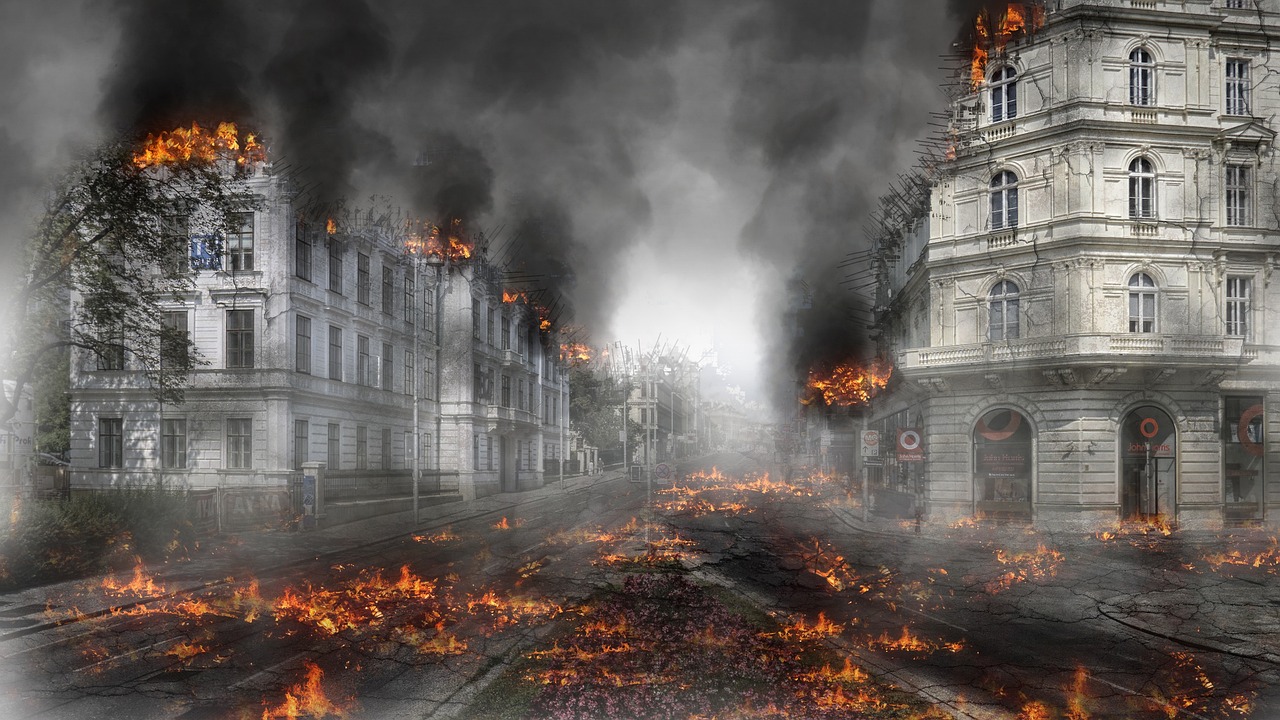
Just War Theory
is a philosophical framework that has been utilized for centuries to evaluate the moral justification of warfare. It seeks to provide a set of criteria that can help determine whether entering into war is ethically permissible. This theory is not just a collection of abstract ideas; rather, it serves as a practical guideline for leaders and military personnel when grappling with the heavy burden of war. The core premise of Just War Theory is that while war is generally regarded as a tragic event, it can be justified under certain circumstances. This nuanced understanding encourages a moral compass that can guide decisions in the fog of conflict.
At its heart, Just War Theory is divided into two main components: jus ad bellum (the right to go to war) and jus in bello (the right conduct within war). The former addresses the reasons and justifications for initiating conflict, while the latter focuses on the ethical conduct of warfare itself. This bifurcation allows for a comprehensive analysis of wartime actions, ensuring that ethical considerations are not overlooked at any stage of conflict.
To better understand how Just War Theory operates in practice, let’s break down its fundamental principles:
- Just Cause: War should only be waged for reasons that are morally justified, such as self-defense or protecting innocent lives.
- Proportionality: The anticipated benefits of waging war must outweigh the expected harm and destruction.
- Discrimination: Combatants must distinguish between military targets and non-combatants, aiming to minimize civilian casualties.
These principles serve as a moral litmus test, allowing nations to critically assess their motivations and actions. For instance, a nation might argue that it is entering a conflict to protect human rights, thus invoking the principle of just cause. However, if the ensuing violence leads to significant civilian casualties, the principle of proportionality may come into question. This interplay of principles underscores the complexity of ethical decision-making in warfare.
Despite its long-standing influence, Just War Theory is not without its critics. Some argue that it can be manipulated to justify aggressive actions, while others contend that the criteria are often too vague or subjective. In today’s multifaceted global landscape, where conflicts rarely fit neatly into defined categories, the application of Just War Theory can become contentious. The challenge lies in ensuring that ethical considerations remain at the forefront of military strategy, rather than being sidelined by political agendas or national interests.
In conclusion, Just War Theory offers a vital framework for navigating the murky waters of warfare. By encouraging a rigorous examination of the reasons behind conflict and the means employed, it serves as a moral guide for decision-makers. As we continue to grapple with the realities of war in the modern world, revisiting and refining these ethical principles becomes increasingly important. Ultimately, the goal is not only to justify war when necessary but to strive for a world where such justifications are rendered obsolete through effective conflict resolution and diplomacy.

Criteria for Just War
The concept of Just War Theory is not just a philosophical musing; it serves as a vital framework for evaluating the ethical dimensions of warfare. At its core, Just War Theory is built upon several key criteria that must be met to justify the initiation and conduct of war. These criteria are essential for ensuring that military actions are morally defensible and aimed at achieving a just outcome. The three primary principles include just cause, proportionality, and discrimination.
Just Cause is perhaps the most critical criterion. It asserts that a war can only be justified if it is fought for a legitimate reason, such as self-defense against aggression or the protection of innocent lives. For instance, if a nation is under attack, it has the moral right to defend itself. However, the definition of a 'just cause' can be subjective and often leads to heated debates. Many argue that humanitarian interventions can also constitute a just cause, especially when the goal is to prevent atrocities like genocide. Yet, the question remains: how do we determine what constitutes a legitimate threat?
Proportionality refers to the idea that the violence used in the war must be proportional to the injury suffered. This principle is crucial in preventing excessive or indiscriminate harm to civilians and infrastructure. For example, if a country responds to a minor attack with overwhelming force, it raises ethical concerns. The aim should be to achieve peace with the least amount of suffering possible. This principle challenges military leaders to consider the broader implications of their actions, asking them to weigh the potential benefits against the likely casualties.
Discrimination emphasizes the necessity of distinguishing between combatants and non-combatants. In modern warfare, where battles often occur in civilian areas, this principle becomes increasingly complex. Ethical military conduct requires that efforts be made to minimize harm to civilians. The Geneva Conventions outline specific protections for non-combatants, and violations of these protections can lead to war crimes. Thus, understanding and applying the principle of discrimination is vital for maintaining moral integrity during conflicts.
In summary, the criteria for a just war are not merely theoretical constructs; they are essential guidelines that can help navigate the murky waters of military ethics. When nations consider going to war, they must rigorously evaluate their motivations and methods against these principles. Failure to do so not only undermines the ethical foundation of military action but can also lead to devastating consequences for all involved. As we reflect on the complexities of modern warfare, these criteria remind us that the pursuit of peace must always be accompanied by a commitment to ethical conduct.
- What is Just War Theory? Just War Theory is a philosophical framework that evaluates the moral justification for engaging in war, focusing on the principles of just cause, proportionality, and discrimination.
- Why is the criterion of just cause important? It ensures that wars are fought for legitimate reasons, such as self-defense or humanitarian intervention, rather than for aggressive or selfish motives.
- How does proportionality affect military strategy? Proportionality requires that the military response to aggression is measured and does not cause excessive harm relative to the threat faced.
- What role does discrimination play in warfare? Discrimination mandates that combatants must distinguish between military targets and civilians, aiming to protect non-combatants from harm.

Challenges to Just War Theory
While Just War Theory has been a cornerstone of ethical discussions surrounding warfare, it is not without its challenges and criticisms. One of the primary issues is the subjective nature of what constitutes a "just cause." Different cultures and political entities may interpret the reasons for engaging in war differently, leading to potential conflicts in ethical reasoning. For instance, one nation might view a military intervention as a necessary act of self-defense, while another sees it as an unjust aggression. This disparity raises questions about the universality of ethical principles and whether they can genuinely apply across diverse contexts.
Moreover, the criteria of proportionality and discrimination, which are essential to Just War Theory, are often challenging to uphold in practice. Proportionality requires that the violence used in war must be proportional to the injury suffered, but quantifying this can be incredibly complex. In the heat of battle, distinguishing between combatants and non-combatants becomes increasingly difficult, leading to tragic civilian casualties. The ethical implications of such losses can be devastating, often resulting in a cycle of resentment and retaliation that undermines the very principles Just War Theory seeks to uphold.
Another significant challenge arises from the evolution of warfare itself. Modern conflicts often involve non-state actors, such as terrorist organizations or insurgent groups, which complicate traditional notions of just war. These groups may not adhere to the same ethical standards or rules of engagement, making it difficult to apply Just War Theory effectively. Additionally, the rise of cyber warfare introduces new dimensions of conflict that were not anticipated by traditional ethical frameworks. How do we apply the principles of Just War Theory to a situation where the battlefield is virtual, and the enemy may not even be identifiable?
Furthermore, critics argue that Just War Theory can be manipulated to justify unjust actions. Politicians and military leaders may selectively interpret its principles to lend ethical legitimacy to their decisions, thereby undermining its integrity. This manipulation can lead to a slippery slope where the criteria for a just war become increasingly diluted, allowing for wars that may not meet the ethical standards initially set forth.
In summary, while Just War Theory offers a valuable framework for discussing the ethics of war, it is essential to recognize its limitations. The challenges of subjective interpretation, the complexities of modern warfare, and the potential for ethical manipulation all pose significant hurdles. As we strive for peace in a war-torn world, it is crucial to engage in ongoing dialogue about these challenges and seek more comprehensive ethical frameworks that can adapt to the realities of contemporary conflict.
- What is Just War Theory? Just War Theory is a moral framework that aims to evaluate the justification for engaging in war, outlining criteria that must be met for a war to be considered just.
- What are the main criteria for a just war? The primary criteria include just cause, proportionality, and discrimination, which guide ethical decision-making in military conflicts.
- Why is Just War Theory criticized? Critics argue that its principles can be subjectively interpreted, making it difficult to apply universally, especially in modern conflicts involving non-state actors.
- How does modern warfare challenge Just War Theory? The rise of cyber warfare and non-state actors complicates traditional ethical frameworks, leading to ethical dilemmas that were not previously addressed.
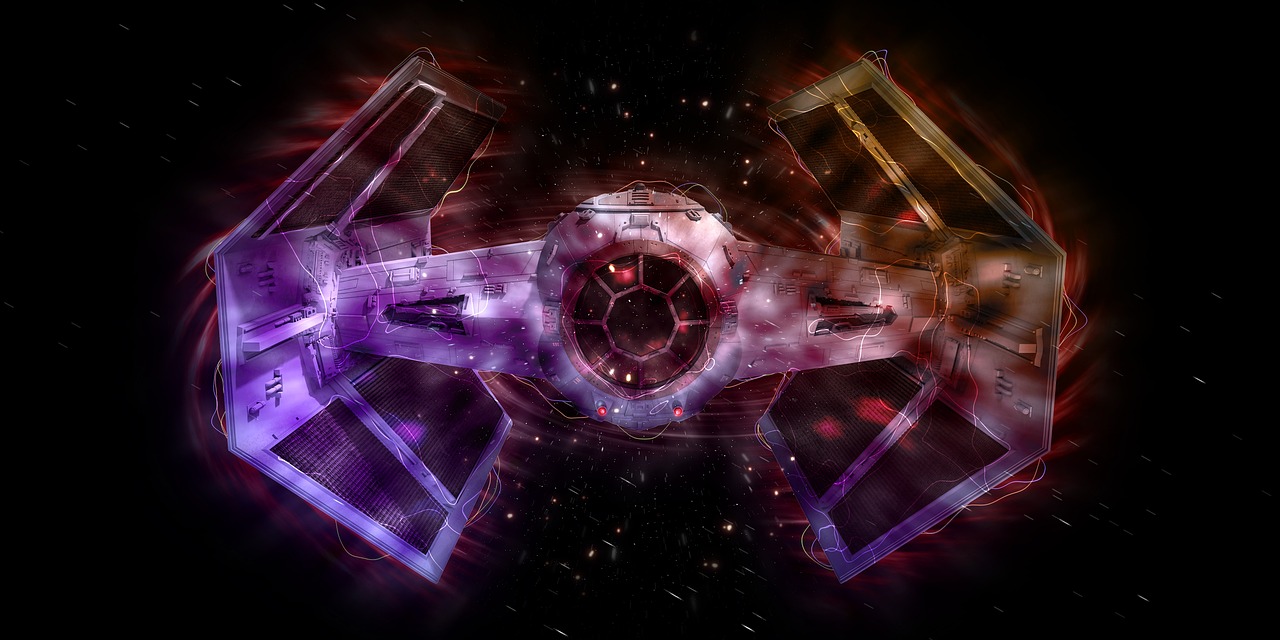
Ethical Dilemmas in War
War is a complex tapestry woven with threads of human emotion, ambition, and morality. In the throes of conflict, ethical dilemmas emerge like shadows, forcing individuals and nations to confront choices that can haunt them for a lifetime. Imagine being a soldier, standing at the crossroads of duty and humanity, where every decision could lead to life or death. The weight of such choices is immense, and it can often feel like navigating a minefield of moral uncertainty.
One of the most pressing ethical dilemmas in war is the question of collateral damage. When military operations are conducted, the potential for civilian casualties looms large. A commander may face the heart-wrenching decision of whether to strike a target that could eliminate a significant threat but at the cost of innocent lives. This situation raises critical questions: How do we measure the value of a soldier's life against that of civilians? Is it ever justifiable to sacrifice a few for the many? These dilemmas can lead to a profound sense of guilt and moral injury among those involved.
Another significant ethical dilemma is the treatment of prisoners of war (POWs). The Geneva Conventions outline humane treatment, yet history shows that these standards are often violated. Soldiers may grapple with orders that contradict their moral compass, leading to situations where they must choose between following orders and adhering to ethical principles. This conflict can create a rift in their personal integrity and loyalty to their country. The consequences of such decisions can ripple through time, affecting not just the individuals involved but also the broader societal perceptions of justice and morality.
Furthermore, the concept of justification for war itself raises ethical questions. What constitutes a "just cause"? Political leaders often invoke the need for national security or humanitarian intervention, but these justifications can be clouded by ulterior motives. The line between protecting one's nation and engaging in imperialistic pursuits can become blurred, leaving citizens and soldiers alike questioning the true nature of their involvement. This ambiguity not only complicates the ethical landscape but also sows distrust among the populace, leading to widespread disillusionment.
In the realm of modern warfare, the rise of technology introduces new ethical challenges. The use of drones, for example, has changed the dynamics of combat. While they can minimize risks to soldiers, they also distance operators from the consequences of their actions. This detachment can lead to a desensitization to violence, making it easier to justify strikes without fully considering the human toll. As we embrace technological advancements, we must also grapple with the ethical implications of these tools and their impact on our humanity.
Ultimately, the ethical dilemmas faced in war are not merely theoretical; they are deeply personal and profoundly impactful. They challenge our understanding of right and wrong, forcing us to confront uncomfortable truths about ourselves and our societies. The decisions made in the heat of battle can shape the course of history, and as such, it is imperative that we engage in ongoing dialogue about the moral implications of war. Only through reflection and discussion can we hope to navigate the murky waters of ethics in conflict.
- What is an ethical dilemma in war? An ethical dilemma in war refers to a situation where individuals must choose between conflicting moral principles, often involving difficult decisions that can lead to significant consequences.
- How does collateral damage affect ethical decision-making? Collateral damage complicates ethical decision-making by forcing military leaders to weigh the potential loss of innocent lives against the necessity of military objectives.
- What role do prisoners of war play in ethical discussions? The treatment of prisoners of war raises ethical concerns regarding humane treatment, adherence to international laws, and the moral responsibilities of soldiers and leaders.
- How has technology changed ethical dilemmas in war? Technology, such as drone warfare, has introduced new ethical challenges by creating distance between operators and the battlefield, potentially leading to desensitization to violence.
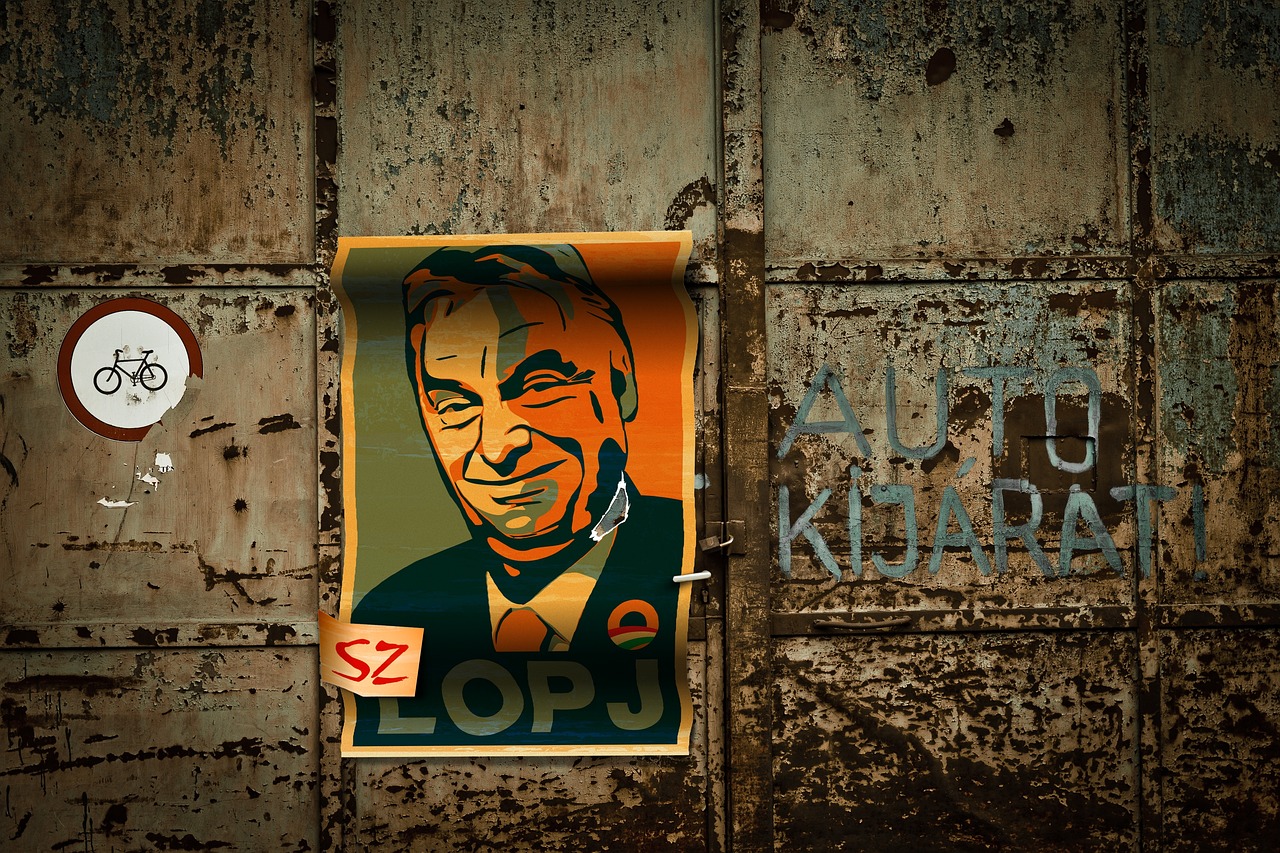
The Importance of Dialogue and Diplomacy
In a world riddled with conflict, the significance of dialogue and diplomacy cannot be overstated. These two elements serve as the bedrock of peacebuilding efforts, acting as bridges over the turbulent waters of war. Imagine trying to cross a raging river without a bridge; that’s what attempting to resolve conflicts without dialogue feels like. The power of communication lies not just in exchanging words, but in the ability to foster understanding, build trust, and create a path toward reconciliation.
Dialogue is essential because it allows conflicting parties to express their concerns, fears, and aspirations. It’s akin to opening a window in a stuffy room; fresh air can circulate, and clarity can emerge. When parties engage in open discussions, they can uncover the underlying issues fueling the conflict, which often go deeper than surface-level grievances. For instance, two nations may find that their disputes stem from historical injustices or economic disparities. By addressing these root causes through dialogue, they can begin to dismantle the barriers that divide them.
Moreover, diplomacy plays a pivotal role in transforming dialogue into actionable solutions. It's not enough to merely talk; there must be a willingness to negotiate and find common ground. Effective diplomacy involves skilled negotiators who can navigate the complexities of human emotions and political agendas. These diplomats often act as the oil in the machinery of conflict resolution, ensuring that discussions remain productive and focused on achieving peace. They help to create a safe environment for dialogue, where all parties feel heard and respected.
One of the most significant advantages of dialogue and diplomacy is their ability to prevent escalation. When conflicts are left unaddressed, they can spiral out of control, leading to violence and suffering. By engaging in meaningful conversations, parties can de-escalate tensions and prevent misunderstandings from igniting into full-blown conflicts. This proactive approach is essential in a world where the stakes are high, and the consequences of war can be devastating.
However, it’s important to recognize that dialogue and diplomacy are not without their challenges. Mistrust can be a formidable barrier, often stemming from past betrayals or failed negotiations. To overcome this, parties must work diligently to build trust through transparency and consistency. Strategies such as regular communication, confidence-building measures, and involving neutral third parties can help facilitate this process. For example, establishing a joint committee to address specific issues can demonstrate a commitment to collaboration and mutual respect.
In conclusion, the importance of dialogue and diplomacy in conflict resolution cannot be overstated. They are not merely tools for negotiation; they are vital components of a peaceful society. By prioritizing open communication and fostering diplomatic relations, we can pave the way for a more harmonious world. As we move forward, let us remember that every conversation is a step toward understanding and every negotiation is a chance to heal.
- Why is dialogue important in conflict resolution?
Dialogue is crucial because it allows conflicting parties to express their concerns and work towards understanding the root causes of their issues. - What role does diplomacy play in peacebuilding?
Diplomacy facilitates negotiations and helps ensure that discussions are productive, ultimately leading to actionable solutions. - How can trust be built in conflict situations?
Trust can be built through transparency, consistent communication, and involving neutral third parties to mediate discussions. - What are the challenges of dialogue and diplomacy?
Mistrust and past grievances can hinder effective dialogue, making it essential to address these issues upfront.
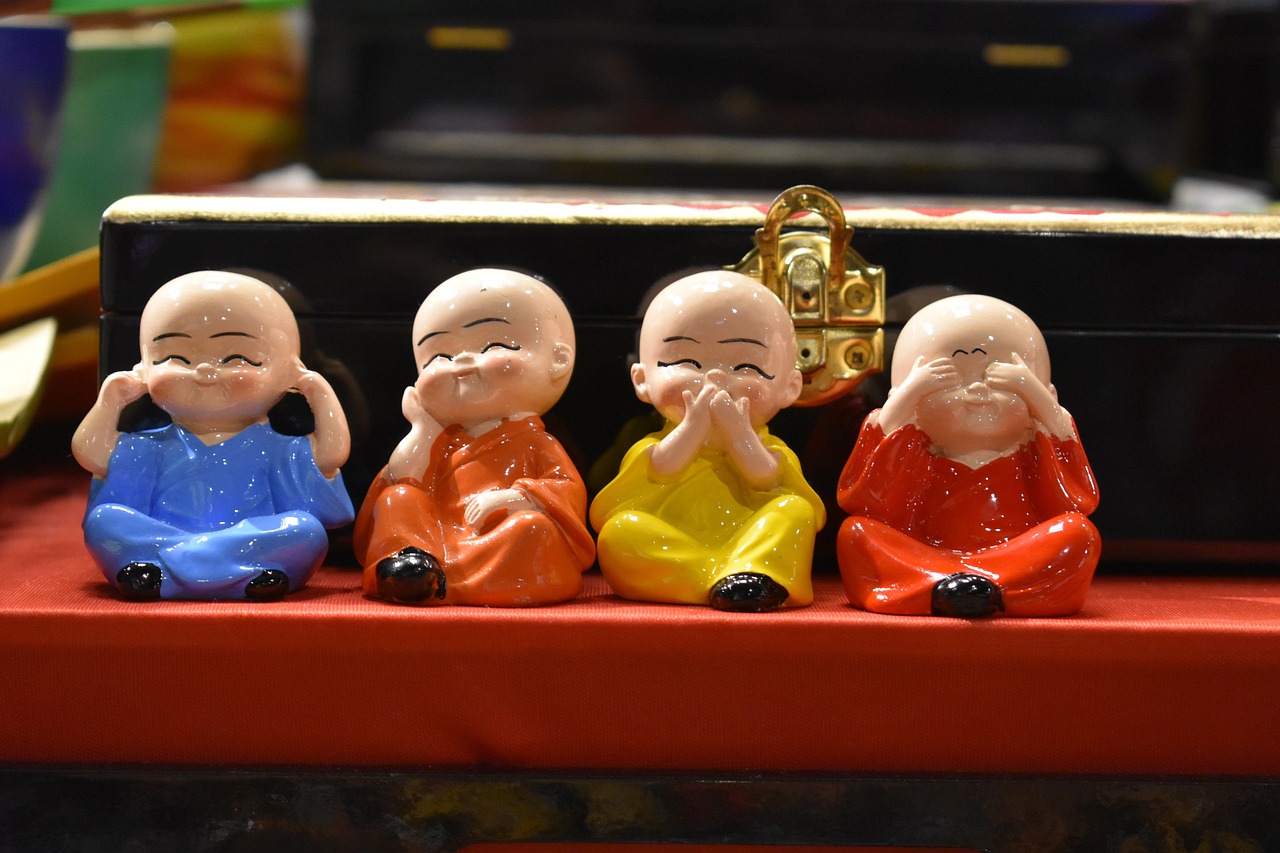
Building Trust Through Communication
In the intricate dance of conflict resolution, communication serves as the lifeblood that sustains relationships and fosters understanding among opposing parties. When war tears apart communities and nations, the ability to communicate effectively can be the bridge that leads to healing and reconciliation. It’s not just about exchanging words; it’s about creating an environment where trust can flourish. Imagine a garden where seeds of conversation are sown, watered with empathy and nurtured by active listening. This garden can yield the fruits of peace, but only if the soil is rich with integrity and respect.
One of the fundamental aspects of building trust through communication is the concept of active listening. This goes beyond merely hearing what the other party is saying; it involves engaging with their words, reflecting on their meaning, and responding thoughtfully. When individuals feel heard, they are more likely to open up, share their perspectives, and engage in meaningful dialogue. It’s like tuning into a favorite song; the more you listen, the deeper your understanding of the melody and lyrics becomes. In conflict situations, actively listening can transform adversaries into collaborators, paving the way for constructive conversations that prioritize mutual interests over individual grievances.
Furthermore, establishing clear and honest communication channels is vital. This means being transparent about intentions, acknowledging emotions, and avoiding ambiguous language that can lead to misunderstandings. A commitment to honesty can act as a beacon in the fog of conflict, guiding parties toward shared goals. For example, when negotiating peace, it’s essential for both sides to articulate their needs and fears openly. This transparency not only builds trust but also lays the groundwork for finding common ground.
In addition to active listening and honesty, employing empathetic communication is crucial. This involves not only understanding the other party's perspective but also validating their feelings and experiences. When individuals feel that their emotions are acknowledged, it fosters a sense of safety and encourages further dialogue. Think of it as a warm hug in a chilly room; it creates a comforting atmosphere that invites openness and collaboration. In practice, this could mean using phrases like, “I understand that this situation is painful for you,” which can significantly de-escalate tensions and promote a more cooperative spirit.
Another effective strategy for building trust through communication is the use of non-verbal cues. Body language, eye contact, and tone of voice all play a critical role in how messages are perceived. For instance, maintaining eye contact can convey sincerity and attentiveness, while a calm tone can help diffuse hostility. Being mindful of these non-verbal signals can enhance the overall effectiveness of communication, making it easier for conflicting parties to connect on a human level.
Ultimately, building trust through communication is not a one-time event but a continuous process. It requires patience, commitment, and a willingness to engage in difficult conversations. As conflicts evolve, so too must the strategies employed to communicate effectively. By fostering an environment of open dialogue, empathy, and respect, we can create pathways to peace that not only resolve immediate issues but also lay the foundation for lasting relationships. Just as a sturdy bridge connects two shores, effective communication can link divided parties, leading them toward a common goal of harmony and understanding.
- What is the role of communication in conflict resolution? Communication serves as a vital tool for building trust, understanding perspectives, and finding common ground in conflict situations.
- How can active listening improve communication? Active listening allows parties to feel heard and understood, fostering a more open and constructive dialogue.
- Why is honesty important in negotiations? Honesty establishes transparency and trust, which are critical for effective negotiations and conflict resolution.
- What are non-verbal cues, and why do they matter? Non-verbal cues, such as body language and tone of voice, significantly impact how messages are perceived and can enhance understanding in communication.

The Role of Third Parties in Mediation
When it comes to resolving conflicts, especially in war-torn regions, the presence of third parties can be a game changer. Think of these mediators as the referees in a heated sports match, ensuring that both sides play fair and have a chance to express their grievances without escalating tensions. Third-party involvement can take many forms, from international organizations like the United Nations to local NGOs and even respected community leaders. Their role is not merely to observe but to actively facilitate dialogue and negotiation, guiding conflicting parties toward a peaceful resolution.
One of the most significant advantages of having third parties in mediation is their ability to provide neutrality. Conflicting parties often harbor deep-seated mistrust towards each other, which can cloud judgment and hinder communication. A neutral mediator can help to bridge the gap, ensuring that both sides feel heard and understood. This is crucial because when individuals feel validated, they are more likely to engage in constructive dialogue rather than resorting to hostility. A skilled mediator can create a safe space for discussions, allowing for emotional expression while steering the conversation toward practical solutions.
Moreover, third parties can bring valuable expertise to the table. Many mediators have backgrounds in conflict resolution, psychology, or international relations, equipping them with the tools to navigate complex negotiations. They can identify underlying issues that may not be immediately apparent to the conflicting parties. For instance, a mediator might recognize that a dispute over territory is actually rooted in historical grievances or economic disparities. By addressing these deeper issues, mediators can help to craft solutions that are not only acceptable but sustainable in the long run.
In addition to facilitating dialogue, third parties can play a crucial role in ensuring that any agreements reached are adhered to. They can act as monitors, helping to implement peace agreements and providing support in the aftermath of conflict. This is particularly important in situations where trust is fragile, as the presence of a mediator can help to reassure parties that they are not alone in the process. They can also provide resources and training to help communities rebuild and foster long-term peace.
However, it's essential to recognize that the role of third parties is not without its challenges. The effectiveness of mediation can be significantly influenced by the perception of neutrality. If one party believes that the mediator is biased or has a vested interest in the outcome, it can lead to further complications. Therefore, establishing credibility and trust is paramount for third-party mediators. Additionally, the complexities of each conflict can vary greatly, meaning that a one-size-fits-all approach may not be effective. Mediators must be adaptable, tailoring their strategies to fit the unique context of each situation.
Despite these challenges, the potential benefits of third-party mediation in conflict resolution are immense. By fostering dialogue, building trust, and providing expertise, third parties can help transform hostile environments into spaces for peace and understanding. As we look toward a future where conflicts continue to arise, the importance of these mediators cannot be overstated. They serve not just as facilitators but as champions for peace, guiding us toward a world where dialogue triumphs over discord.
- What is the primary role of third-party mediators? Third-party mediators facilitate dialogue and negotiation between conflicting parties, helping to create a safe space for discussion and ensuring that both sides are heard.
- How do mediators establish trust? Mediators establish trust by demonstrating neutrality, being transparent in their actions, and showing a genuine commitment to helping both parties reach a fair resolution.
- Can third-party mediation guarantee peace? While third-party mediation can significantly improve the chances of reaching a peaceful resolution, it cannot guarantee peace, as the willingness of conflicting parties to compromise ultimately determines the outcome.
- What qualifications should a mediator have? An effective mediator typically has a background in conflict resolution, negotiation, psychology, or international relations, along with strong communication and interpersonal skills.
Frequently Asked Questions
- What is the role of ethics in conflict resolution?
Ethics plays a crucial role in conflict resolution by providing a moral framework that guides actions and decisions. It helps individuals and groups navigate complex situations, ensuring that their choices promote peace rather than exacerbate conflict. By adhering to ethical principles, parties can work towards resolving disputes in a manner that respects human dignity and fosters understanding.
- What is Just War Theory?
Just War Theory is a philosophical framework that outlines the moral justifications for engaging in war. It emphasizes that wars should only be fought for just causes, such as self-defense or protecting innocent lives. The theory also includes principles like proportionality and discrimination, which dictate that the violence used in war must be proportional to the injury suffered and that combatants must distinguish between military targets and civilians.
- What are the criteria for a just war?
The criteria for a just war include several key principles: just cause, which refers to having a legitimate reason for going to war; proportionality, which ensures that the response is proportionate to the threat; and discrimination, which mandates that combatants must avoid targeting non-combatants. These criteria are essential for evaluating the ethical implications of military actions.
- What challenges does Just War Theory face?
Just War Theory faces several challenges, including criticisms regarding its applicability in modern warfare, where the lines between combatants and non-combatants are often blurred. Additionally, some argue that the criteria can be manipulated to justify unethical actions. The ongoing debates around the theory highlight the complexities of applying ethical frameworks in real-world conflicts.
- What ethical dilemmas do soldiers face in war?
Soldiers often confront ethical dilemmas such as the decision to follow orders that may harm civilians or the moral implications of using lethal force. These dilemmas can create internal conflicts, as soldiers must balance their duty to obey commands with their personal moral beliefs. The psychological toll of these decisions can be significant, leading to long-term consequences for their mental health.
- How can dialogue and diplomacy contribute to peacebuilding?
Dialogue and diplomacy are essential for peacebuilding as they foster communication between conflicting parties. By engaging in open discussions, parties can address grievances, build trust, and find common ground. Effective diplomacy can lead to negotiated settlements that prevent further violence and promote lasting peace.
- What strategies can be used to build trust through communication?
Building trust through communication involves active listening, empathy, and transparency. Facilitators can create an environment where all parties feel heard and respected. Strategies such as joint problem-solving and collaborative decision-making can also enhance trust, paving the way for more productive negotiations.
- What is the role of third parties in mediation?
Third-party mediators play a vital role in facilitating ethical discussions between conflicting parties. They can provide neutral ground for negotiations, help clarify misunderstandings, and propose solutions that may not have been considered by the parties involved. Their impartial perspective can be instrumental in guiding discussions towards a peaceful resolution.


